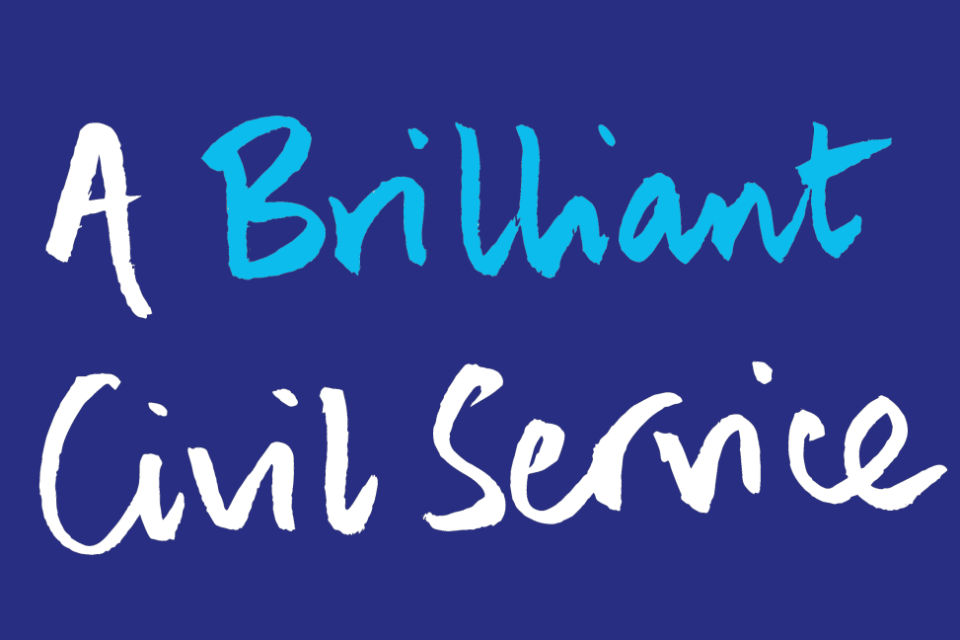To mark Black History Month 2016, Elizabeth Yentumi, an HR Fast Streamer at the Ministry of Justice (MoJ), led a discussion with MoJ Permanent Secretary and Civil Service Race Champion Richard Heaton, and Chair of the Civil Service Race Forum Rob Neil. Their conversation gives food for thought on the importance and potential challenges of celebrating black history, and what this means for the Civil Service.
Read the transcript of their conversation below; or you can listen to the podcast here.

Elizabeth Yentumi
Hello and welcome to an audio podcast looking at Black History Month. I’m Lizzie Yentumi, an HR Fast Streamer at the Ministry of Justice, and today I’m in conversation with Richard Heaton, Civil Service Race Champion and Permanent Secretary for the Ministry of Justice, and Rob Neil, Chair of the Civil Service Race Forum.
Launched in the UK in 1987, Black History Month was introduced to recognise the substantial contributions of African, Caribbean and Asian individuals to British society throughout history. So why do we think Black History Month is important?

Richard Heaton
Well I’ll start. I’ll tell you – this is Richard speaking – why I think it’s important in the Civil Service. I generally think it would be a good thing if we in the Civil Service became more comfortable talking about race, and talking about black and minority ethnic history and affairs and lived experience and all the rest of it. Black History Month, it seems to me, is a pretty good way in. It’s a convenient opportunity: it’s quite fun, it’s quite diverting, it’s really interesting. There are histories that we don’t often tell and stories we don’t often hear, and it seems a pretty good opportunity.

Rob Neil
I’d absolutely agree with that. I think it also shines a light on lesser-known facts. Whilst I could probably sit here and say to you that all of history is important, and I think most people would agree with that, the fact is that there are some things that are lesser known. And they’re lesser-known for reasons, in the way in which history is taught.
I do a lot of work in schools, for example, and if you ask the average student who invented the light bulb they would tell you Thomas Edison, and most tests would probably tick that as correct. But the fact is Thomas Edison’s light bulb filament did not work, it didn’t stay on, but one of his workers, Lewis Latimer, did create the working filament, and those are the kind of things that come out of Black History Month.
Elizabeth
I agree. I knew nothing about the Bristol Bus Boycott of 1963, I knew mainly about the events happening, that happened in the States, so I think like Richard said it’s a great way of telling the stories and having interesting conversations. Interestingly enough, there are some celebrities and prominent members of society who think that Black History Month is a useless concept, not a great idea. Do we need a Black History Month; shouldn’t it be something we look at all year round?
Rob
Well I’ve heard that too, and some of those people who have that view are famous and some aren’t famous, and it’s a legitimate point of view. Why should anyone’s history, any people group’s history, be relegated to a single month? Why aren’t we celebrating history, all of history, all year round? It’s a valid enough point of view but I don’t think it should negate the opportunity that focusing during a single month affords us, and I think we should grab it with both hands.
Richard
Yeah, I mean ideally perhaps, we would never be talking about race at all, because it would cease to be an issue, and we would be equally comfortable with everyone’s experiences, but that’s not quite where we are at the moment, so I think it’s a great thing.
Elizabeth
So talking about where we are at the moment, what else do you think the Civil Service can do to support Black Asian Minority Ethnic employees, in the Civil Service, outside of the Civil Service, what’s going on in our organisations?
Richard
Well, I think it’s one of those subjects where I do think talking is important. And talking is never enough for anything, but talking in this particular area is important, having the conversation itself, is a valuable thing. But that has to be accompanied by action, which we could do individually: by mentoring people, by getting to know our staff networks; by learning who’s on the talent programmes that we’re sponsoring; by getting to know them individually; by asking the networks what it’s like and what are the biases around in the organisation; by caring about the data; by encouraging people to record their ethnicity. You know, there’s lots of stuff we can all do, as leaders and as civil servants, but the conversation’s important as well.
Rob
I absolutely agree with that and I think in agreeing with you I’d want us to be bigger, bolder and braver about those conversations too, you know. I absolutely hear what Richard says on that and I agree with you Richard, but my experience is that we tend to dip our toe into the water of that objective and we don’t really swim in it, we don’t bathe in it, we don’t actually enjoy it and reach for the enjoyment. And I think there’s ways in which we can do that, and if we adopt a creative approach and if we are really brave in our approach, I think it will release other people to be the same.
Elizabeth
I agree with that.
Richard
We’re all agreeing with each other.
Rob
Yeah.
Elizabeth
We are. I’m about to disagree. I think one of the stumbling blocks could potentially be staff networks, so people often think that staff networks are for the people from the protected characteristic they are working with. What would you think about that?
Rob
Well, I’ll dive in on this. I think this is potentially an area where we could have different, you know legitimately so, but different points of view. I think for too long staff networks are regarded as volunteer groups, groups that are nice to have and you can tick a box to say you’ve got one. I think what really needs to start happening is that staff networks need to be regarded as business critical, and in so being they are invested in. They’re not an option for senior managers to consider releasing staff to contribute or, indeed, budgeting. But if we actually proactively talk about their intrinsic ownership of the issues, it affords them a proximity to the solution that is closer than most.
Richard
So I feel that very strongly, I’m a white race champion. That means that I’m limited in some ways in how I can do the job and the intrinsic ownership point is really important. I hope that part of my job as race champion is to bring the voices of the BME community to the top table or to other forums, and the best way of doing that is with staff networks.
Rob
I absolutely agree, again.
Elizabeth
Here we are, all agreeing with each other.
Richard
We need to be bolder.
Elizabeth
Well we’ve got a very bold ambition as a Civil Service. The Civil Service aims to be the most inclusive employer by 2020. That’s going to include lots of various methods – how do we see that happening? What do you think needs to happen for us to get to that point?
Rob
Well, I think, I’m into my fourth decade as a Civil Servant now, and so I guess I’ve got something to lean on here, but I think it does mean almost implicitly that we’re going to have to do things differently. We’ll have to do them differently to what we’ve done in the past, because something about what we’ve tried up until now has had us arrive at this point, where we have got anomalies, discrepancies and underrepresentation, particularly higher up our organisations.
And I think whether we’re looking at diverse panels, but really holding leaders to account about diverse panels, whether we’re talking about development programmes that target underrepresented groups, and in this case BAME [Black, Asian and Minority Ethnic] staff. I think there are ways in which we could look at what was the double-tick system for people with a disability, now Disability Confident, but perhaps introducing something along the lines of Race Confident, where we actually look at how we could take proactive steps and measures to make our workforce more reflective.
Richard
I think we will make a breakthrough when we get a very large number of Black Asian Minority Ethnic colleagues into the Senior Civil Service. It’s not all about senior roles of course – but that is so important symbolically – it is also important for role models, it is also important because, as I said earlier, it then would mean there are black people in the room, challenging practices which are inherently biased, or are biased in a hidden and subtle way. So I think that breakthrough could be really important.
Elizabeth
 Rob, Richard, thank you very much for sharing your insights today on Black History Month and what we are looking to do in the Civil Service. Thanks everybody for listening and more information on Black History Month, events and terminology referenced during this conversation can be found in the links below.
Rob, Richard, thank you very much for sharing your insights today on Black History Month and what we are looking to do in the Civil Service. Thanks everybody for listening and more information on Black History Month, events and terminology referenced during this conversation can be found in the links below.
Black History Month 2016 - Prime Minister Theresa May’s message

2 comments
Comment by Neville posted on
It was interesting to hear Richard Heaton refer to himself as a "white race champion" a phase that that does instil confidence in me at all.
In addition the quote "Launched in the UK in 1987, Black History Month was introduced to recognise the substantial contributions of African, Caribbean and Asian individuals to British society throughout history. So why do we think Black History Month is important" is somewhat undermined that the fact the picture on the MOJ website advertising BHM only shows Black personalties for the united states and none from the UK.
Comment by Winston Murray posted on
Too many soft questions. No concrete answers how to get the Board to represent the community they serve. Until that day happens Blacks and Asians will always see a ceiling in the civil service.